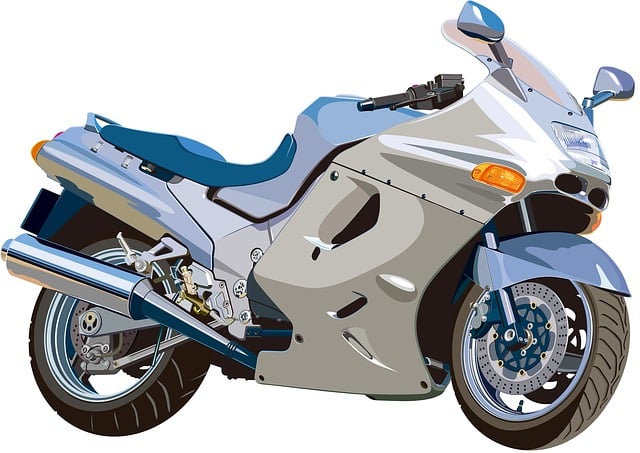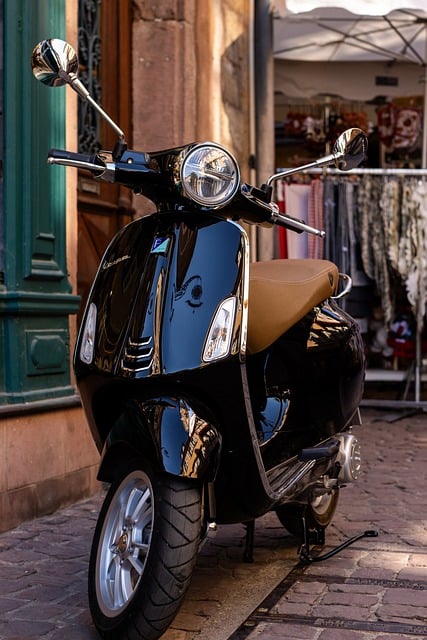Motorcycle batteries are key to advancing sustainable transportation, offering compact, efficient designs that reduce weight and improve fuel efficiency. Their rechargeable and reusable nature, particularly advanced options like lithium-ion and nickel-metal hydride, significantly lower the environmental impact compared to traditional lead-acid batteries. The rise in electric motorcycles, powered by these sustainable batteries, is a testament to their growing popularity and the industry's focus on extending battery life and range. This shift not only contributes to reducing greenhouse gas emissions but also supports a sustainable future, highlighting the critical role of motorcycle batteries in combating climate change. When selecting a motorcycle battery with environmental sustainability in mind, it's important to consider the lifecycle of the battery, as more sustainable choices are possible due to the reduced environmental impact of these smaller, less energy-intensive batteries. The advancement in battery technology provides greener options like lead-acid batteries that can be recycled or lithium-ion batteries offering superior efficiency and longevity. Proper disposal and recycling of batteries, especially those containing harmful substances, are essential to prevent ecological harm. Choosing batteries with a longer service life reduces waste and the associated carbon footprint, supporting cleaner, greener transportation and less resource consumption. The evolution of motorcycle batteries, particularly with lithium-ion and solid-state technologies, is central to sustainable transportation, offering high efficiency, performance, and adaptability for electric motorcycles, which directly contribute to mitigating climate change and promoting clean energy usage.
Embark on a journey through the evolving landscape of sustainable transportation with an insightful exploration of why motorcycle batteries stand out as a green choice for our planet. This article delves into the environmental benefits of motorcycle batteries, their lifecycle impact, and how they offer a compelling alternative to traditional automotive batteries in reducing carbon footprints. We will also shine a spotlight on the cutting-edge innovations propelling these batteries into the future, offering a practical and sustainable solution in the fight against climate change. Join us as we unravel the advantages of motorcycle batteries within the realm of eco-friendly energy solutions.
- Unlocking Eco-Friendly Energy: The Advantages of Motorcycle Batteries in Sustainable Transportation
- The Lifecycle of a Motorcycle Battery: How Choosing One Supports Environmental Health
- Comparative Analysis: Why Motorcycle Batteries Outperform Traditional Automotive Batteries in Reducing Carbon Footprint
- Future-Proofing with Innovation: The Role of Advanced Motorcycle Battery Technology in Combat Climate Change
Unlocking Eco-Friendly Energy: The Advantages of Motorcycle Batteries in Sustainable Transportation

Motorcycle batteries play a pivotal role in sustainable transportation, offering a compact and efficient energy source that aligns with eco-conscious objectives. Unlike their automotive counterparts, motorcycle batteries are designed to be more lightweight and smaller, making them an ideal fit for the limited space available on two-wheeled vehicles. This design not only optimizes the overall weight of the motorcycle but also reduces the energy required to propel it, leading to better fuel efficiency. As consumers increasingly seek greener alternatives, motorcycle batteries stand out due to their ability to be recharged and reused, significantly cutting down on the environmental impact associated with traditional lead-acid batteries.
The transition to advanced battery technologies, such as lithium-ion and nickel-metal hydride, further underscores the role of motorcycle batteries in promoting a greener planet. These high-performance batteries offer longer lifespans, maintain charge more effectively, and can store more energy than their predecessors, enabling motorcyclists to travel longer distances on a single charge. The shift towards electric motorcycles, powered by these sophisticated batteries, is gaining momentum as manufacturers invest in research and development to improve battery life and range. This leap towards cleaner transportation not only reduces greenhouse gas emissions but also paves the way for a more sustainable future, making motorcycle batteries a key component in the global effort to combat climate change.
The Lifecycle of a Motorcycle Battery: How Choosing One Supports Environmental Health

Selecting a motorcycle battery with an emphasis on environmental health is a significant decision for riders committed to sustainability. The lifecycle of a motorcycle battery is a critical aspect to consider when prioritizing eco-friendly choices. Unlike their automotive counterparts, motorcycle batteries are typically smaller and require less energy, which can be advantageous in terms of the materials used and the energy consumed throughout their life. Modern advancements in battery technology have led to the development of environmentally friendly options, such as lead-acid batteries with recyclable components or lithium-ion alternatives that offer higher efficiency and longer service life.
When a motorcycle battery reaches its end-of-life, responsible disposal and recycling are paramount to minimize environmental impact. Lead-acid batteries, for instance, contain sulfuric acid and lead dioxide, both of which can be hazardous if not disposed of properly. The recycling process of these materials can mitigate the ecological footprint, as it prevents the extraction of new resources and reduces the release of harmful substances into the environment. Furthermore, opting for batteries with a longer lifespan means fewer replacements are needed over time, which translates to less waste and a lower carbon footprint. By choosing motorcycle batteries that are designed with the environment in mind, riders contribute to a greener planet through reduced resource consumption and lower emissions associated with battery production and disposal.
Comparative Analysis: Why Motorcycle Batteries Outperform Traditional Automotive Batteries in Reducing Carbon Footprint

Motorcycle batteries are increasingly gaining attention as a more sustainable power solution compared to traditional automotive batteries. A comparative analysis reveals that motorcycle batteries tend to outperform their larger counterparts in several critical aspects that contribute to reducing the carbon footprint. Firstly, motorcycle batteries are generally lighter and smaller due to the lower energy requirements of motorcycles. This reduced size and weight result in less material used in their construction, which translates to a more efficient use of resources during manufacturing. Moreover, the energy density required for motorcycle operation is significantly lower, leading to less energy consumption over the battery’s lifecycle.
Furthermore, the maintenance requirements for motorcycle batteries are typically less demanding, often requiring simpler charging processes and less frequent replacements due to their efficient design. The lead-acid batteries commonly used in traditional automotive applications, on the other hand, can be heavier and require more maintenance. The smaller scale of motorcycle batteries also means that the production process can be optimized with a higher degree of precision, leading to less waste and lower energy consumption during manufacturing. Additionally, the replacement cycle for motorcycle batteries is often longer, meaning fewer resources are used over time, contributing to a reduced environmental impact. These factors combined make motorcycle batteries a more environmentally friendly option, playing a significant role in the global effort to mitigate carbon emissions and promote a greener planet.
Future-Proofing with Innovation: The Role of Advanced Motorcycle Battery Technology in Combat Climate Change

As the global community grapples with the pressing issue of climate change, the transportation sector is under increased scrutiny for its carbon footprint. Among the most significant contributors to this footprint are traditional internal combustion engines. Conversely, electric motorcycles represent a cleaner, more sustainable alternative that can play a pivotal role in the transition towards a greener planet. The development and deployment of advanced motorcycle batteries are at the forefront of this transformation. These batteries, often lithium-ion or solid-state variants, are designed with innovation as a cornerstone, ensuring they are not only efficient and high-performing but also future-proof against technological advancements. The integration of smart energy management systems further enhances their potential to store and release power optimally, reducing the need for frequent charging and extending their range. As these batteries improve in capacity, durability, and recyclability, they become a critical component in combating climate change by offering a viable, eco-friendly option for urban transportation. The role of motorcycle batteries in this context is to provide a sustainable power source that aligns with the objectives of reducing emissions and promoting cleaner energy usage, ultimately contributing to a healthier environment. The continuous innovation in battery technology not only supports the electrification of motorcycles but also signifies a commitment to sustainability across the board.
Selecting a motorcycle battery not only powers your ride but also contributes to environmental sustainability. The adoption of these batteries in transportation is a step towards mitigating carbon emissions, as highlighted in “Unlocking Eco-Friendly Energy.” Their efficient lifecycle, discussed in “The Lifecycle of a Motorcycle Battery,” further supports this commitment to ecological health. Compared to traditional automotive batteries, motorcycle batteries showcase superiority in reducing the carbon footprint, a point emphasized in “Comparative Analysis.” Moreover, the innovation driving advanced motorcycle battery technology, as explored in “Future-Proofing with Innovation,” is pivotal in the fight against climate change. In light of these compelling reasons, integrating motorcycle batteries into our transportation systems becomes not just a practical choice but an environmentally conscious one, reflecting our shared responsibility to preserve the planet’s health.
